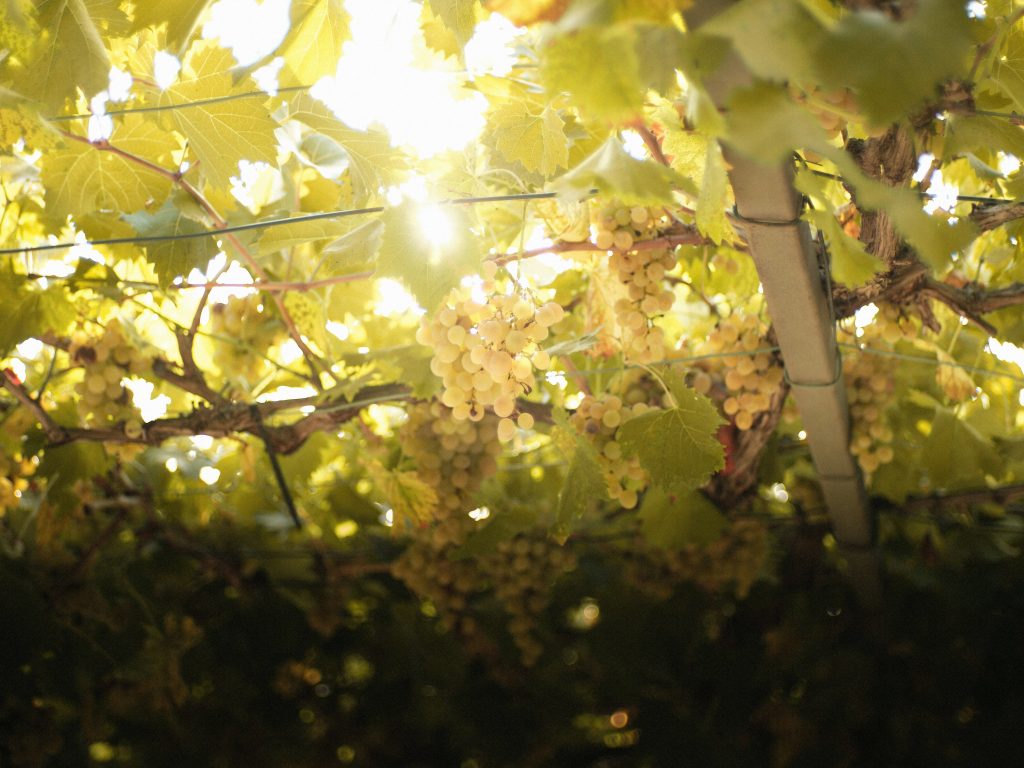May the 23rd, 2024 – While some winemakers are focused on producing quantity and maximising profits, others ply their craft out of love and curiosity. How much do you know about the forgotten Croatian grape varieties?
One of the most interesting aspects of observing life in Croatia over the years has been the progress its wine industry has made. It was just over 20 years ago that the University of Davis proved the DNA link between Zinfandel and Crljenak Kastelanski. The original Zin was from Dalmatia, in Kastela between Split and its increasingly busy airport.
There were, of course, many winemakers, but almost none of them were geared up to wine tourism, a concept that barely existed. How times change! Wine tourism on Hvar, for example, is booming, and spectacular tasting experiences have emerged – the Romanesque cellars of Andro Tomic, Zlatan Otok’s underwater cellar in Sveta Nedjela, and Ivo Caric’s canalside konoba in Vrboska to name but three. Having just returned from the outstanding Boskinac experience on Pag, I am reminded – once again – just how dependent Croatian tourism is on private enterprise to deliver its most luxurious and memorable experiences.
And then there is the other type of winemaker, less opulent, a little more introverted, more concerned about creating an excellent product than how to sell it.
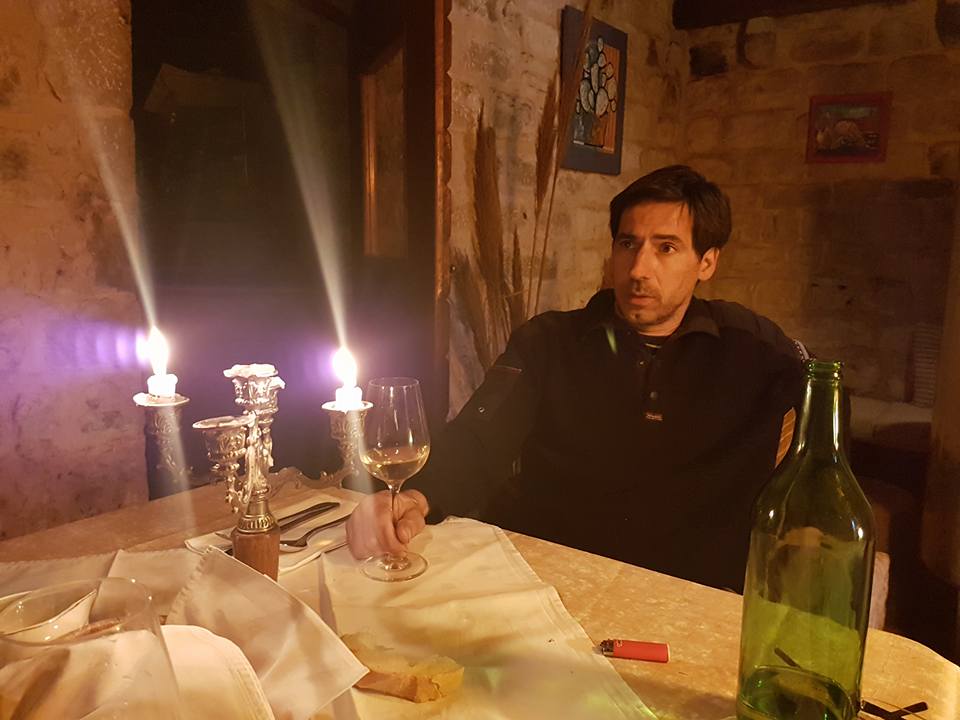
I first met Teo Huljic several years ago. He’s the owner of one of the quirkiest restaurants you will find in Dalmatia (gorgeously uneven stone tables in a private, hidden courtyard, who are given additional protection and secrecy by two burgeoning lemon trees, whose annual half ton of citrus goodness is likely to fall off in part on your table during your meal), Huljic is an accomplished chef with an extremely creative streak, and a food and wine pairing lunch there a few years ago remains of the most outstanding and innovative meals I had on the island during my 13 years living there.
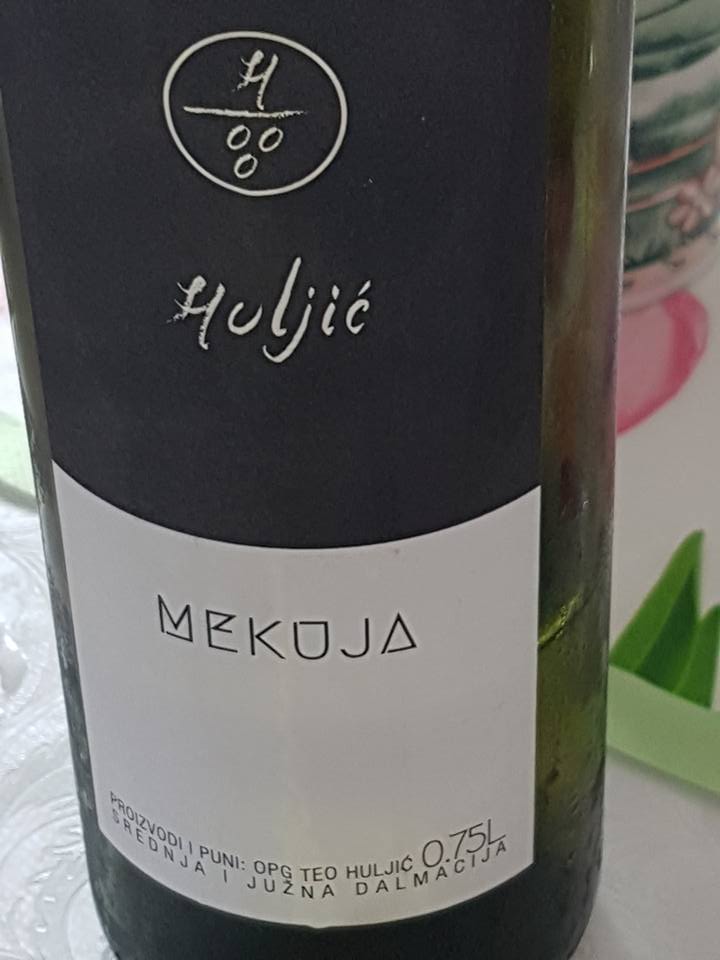
He invited me to come to a wine tasting over Easter a few years ago with a couple of friends. A man who always has something new and unique to offer, he had already given me a bottle of Palarusa for Easter, a Hvar grape variety that I had never heard of. And neither had other Hvar winemakers I asked, and the Internet drew a total blank too, save for a single sentence in Vinopedia. Huljic himself had managed to find just 70 litres of Palarusa for 2017.
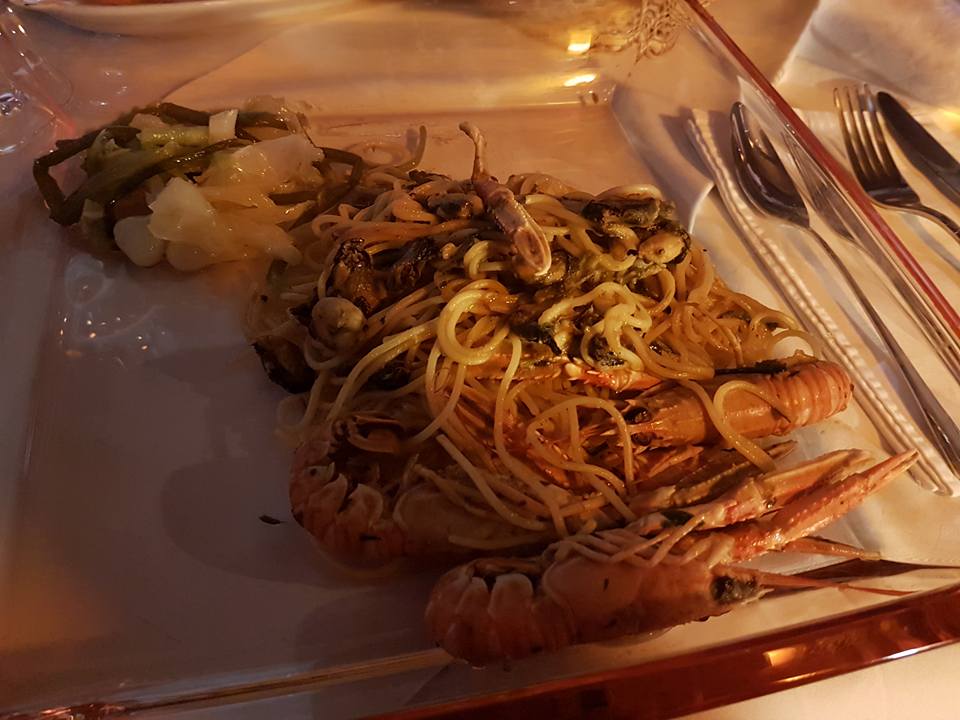
A typical wine tasting in Dalmatia comes with some slices of prsut and cheese, olives and maybe anchovies. Not so when Teo Huljic is the man pouring the wine. For Huljic is not so much interested in selling his wine as encouraging people to enter his world of discovery about the tastes of Hvar. Most of his food is locally sourced and grown by him, the perfect accompaniment to the wines from his local vineyards. Out with the cheese and the prsut, in with spaghetti with shrimp, scampi, mussels and wild asparagus, with a selection of wild greens and wild onions from his field. A field and vineyard which is wild indeed, having been visited by wild boar this year, who helped themselves to much of his produce. A vineyard in a picturesque bay near Jelsa, where Romans also grew grapes, and where Roman graves exist today, something almost nobody knows about, at least until my fellow blogging diners visit the site today with young Teo.
That is one of the things I adore about a Huljic wine tasting – every aspect has a story. There is simply no gourmet experience on Hvar which is similar in terms of quality of food and wine, diversity of wines on offer, and traditional and authentic Dalmatia.
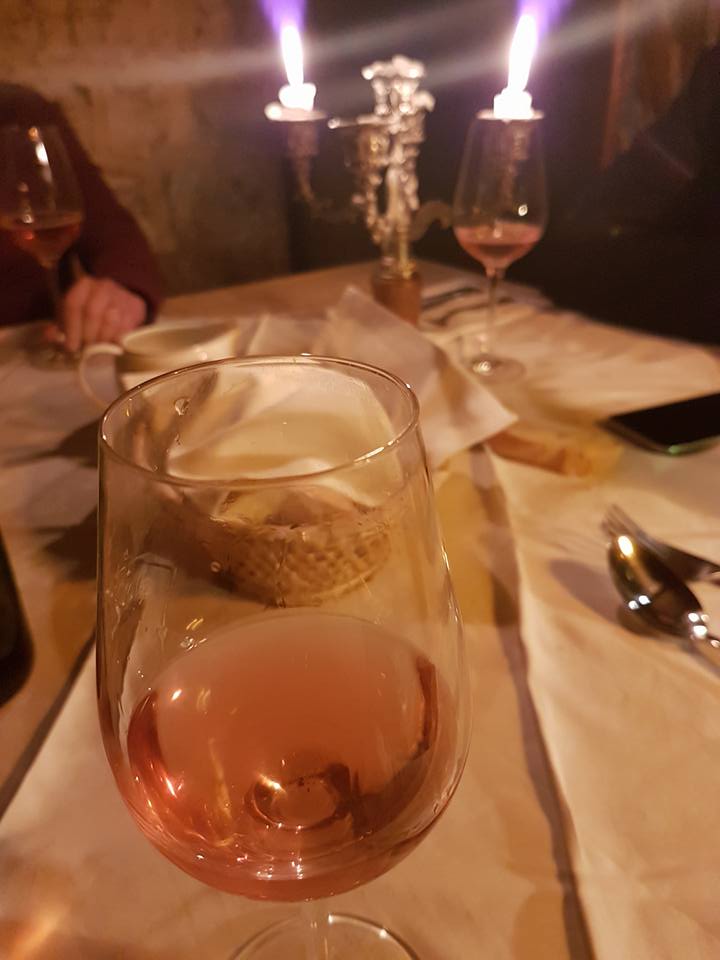
We danced through the whites – despite only making 7500 litres a year, Huljic has an astonishing 15 types of wine, 10 of them white. The unknown Palarusa, was followed by the only slightly more famous Mekuja (his is the only 100% Mekuja in the world, a couple of other Hvar winemakers include in a cuvee), Bogdanusa (the ‘gift from God’, Hvar’s best-known indigenous white, then Kap Sunce, a drop of sunshine, provided by a blend of Bogdanusa and Prc, before the whites came to a conclusion on glass five – Posip. A little rose to announce the change in direction to the reds, which was accompanied by another tasty bite.
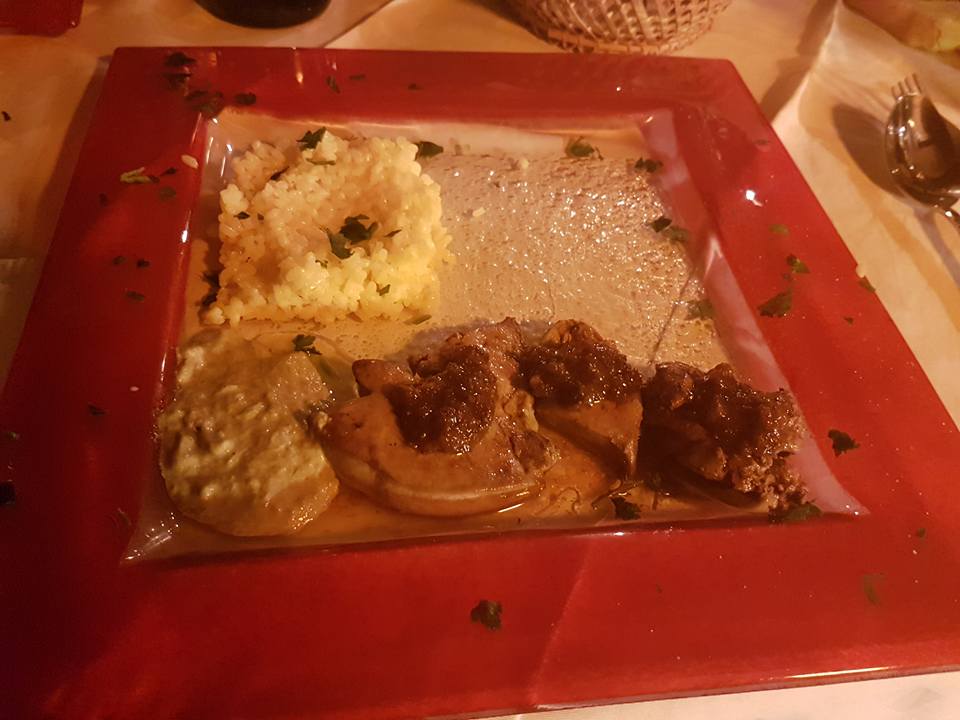
Goose liver pate with raisins soaked in prosek, saffron rice and asparagus puree.
Out came the reds – a Merlot, Cabernet Sauvignon and Mali Plavac cuvee. Want to try it without the Plavac? Here is just the Merlot and Cabernet.
Now try the Plavac from the north of the island. And finally the Plavac from the south.
And all the while, enthusiastic explanations of the methodology, the potential and the experimenting for the future. He is the first to plant Chardonnay on Hvar, for he believes that it will blend well with two local varieties, Prc and Posip. Commercially perhaps not the wisest move, but quintessential Huljic. Next time I come, he explained, there will be another totally forgotten Hvar variety to taste, this time a red.
Curious wine lovers, do not miss the chance to delve into the rich world of forgotten Croatian grape varieties, which is best organised through Hvar Wine Tours.

